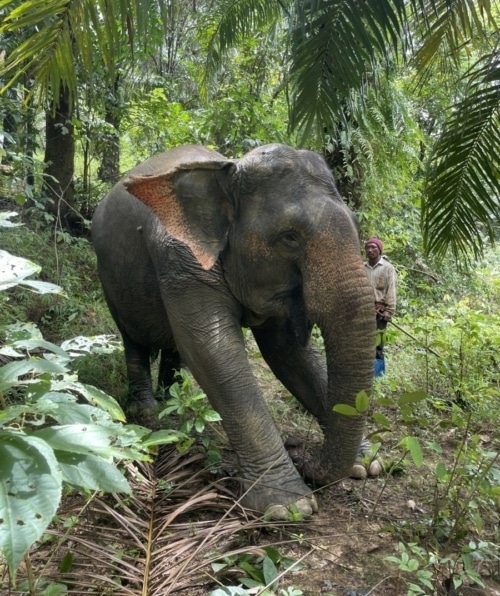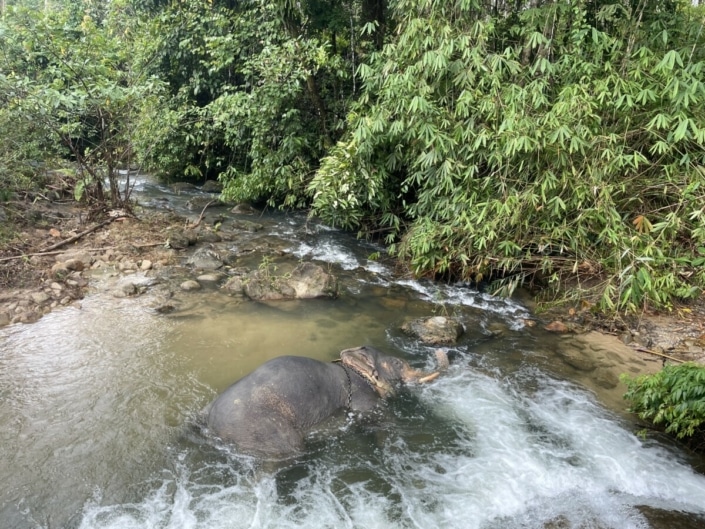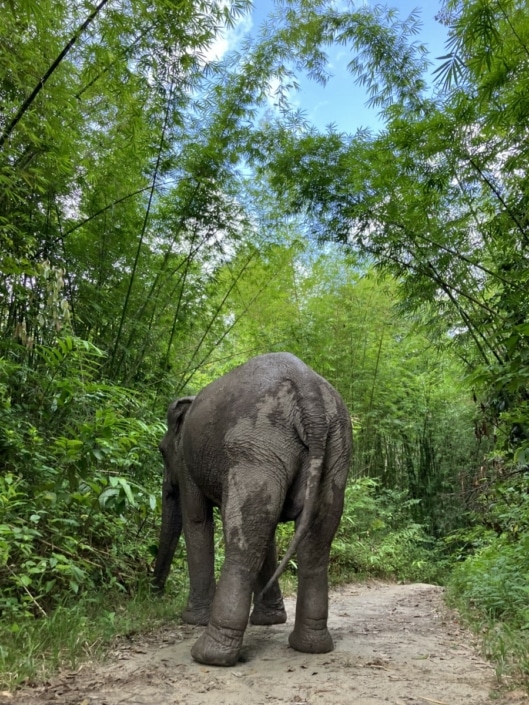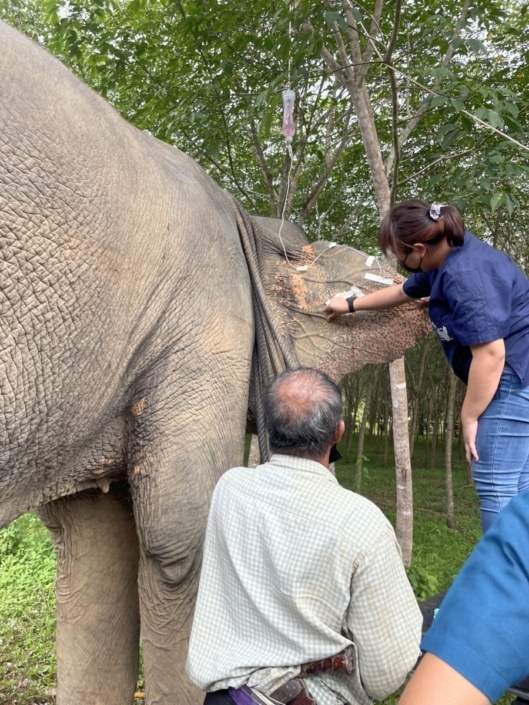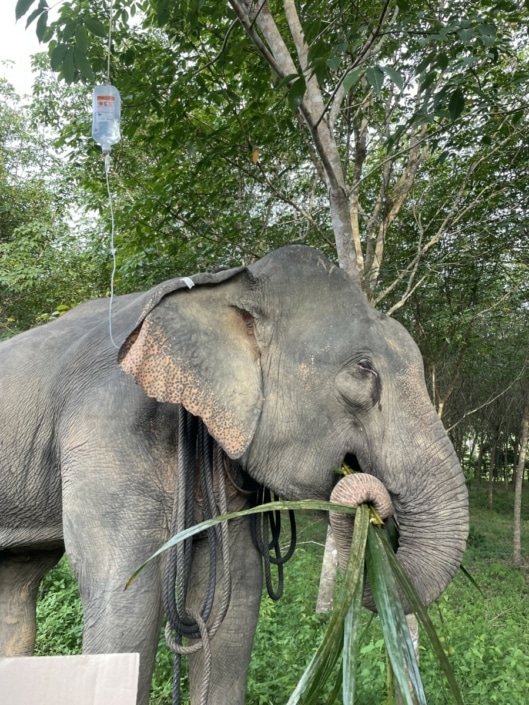Ping Pa, one of the timber elephants recently treated, was struggling to put weight on her front legs.
The STEF veterinary team recently provided medical treatment to 11 timber elephants suffering from a variety of musculoskeletal lameness after reportedly working long hours logging on difficult terrain. The injuries had arisen from elephants slipping in the mud, or occasionally being hit by a log from behind, and these injuries often presented as dragging feet when walking, partial weight-bearing, or infections in the feet resulting from a cut or crack in their soft pads. In these circumstances, STEF does not judge the elephant owners, who themselves often lead a tough life in poor, remote parts of Thailand; our role is to give the best possible care to elephants in need. We do this by providing free, regular medical supervision to any sick or injured elephants, so that they can recover quickly from pain or illness, and we also give advice to the owners on caring for their elephants.
Elephants still have an important role in logging in Thailand. Although logging in natural forests was made illegal in Thailand in 1989 to preserve what was left of the country’s natural habitat [see our journal], there still remain some privately-run logging camps for the removal of old rubber plantations and other clearance work. Plantations are often sited on steep slopes which make access difficult for vehicles, so elephants are needed to remove felled logs. In the rainy season, tracks and even roads become impassable to vehicles, so at this time of year the limited number of suitable elephants available for logging are sometimes required to work long hours.
In one recent case, the STEF veterinary centre received a call to visit a 30-year-old male elephant called Boon Chu, whose owner had noticed that he had become depressed and had lost his appetite after working at a rubber plantation that morning. The mobile clinic arrived late afternoon on the same day to find that Boon Chu had a normal temperature, respiratory rate and heart rate, but his pulse was weak, suggesting dehydration. The vet team provided fluids and supplements via his ear vein, and observed his behaviour. Later, Boon Chu was showing good signs of progress, including ear flapping and a better appetite. The next day, when the vet team called in to follow up on him, he was much improved. Dehydration is a common problem for working elephants, and our vets always impress upon owners the importance of giving their elephants regular access to water.
[Click on photos to enlarge and read captions]

